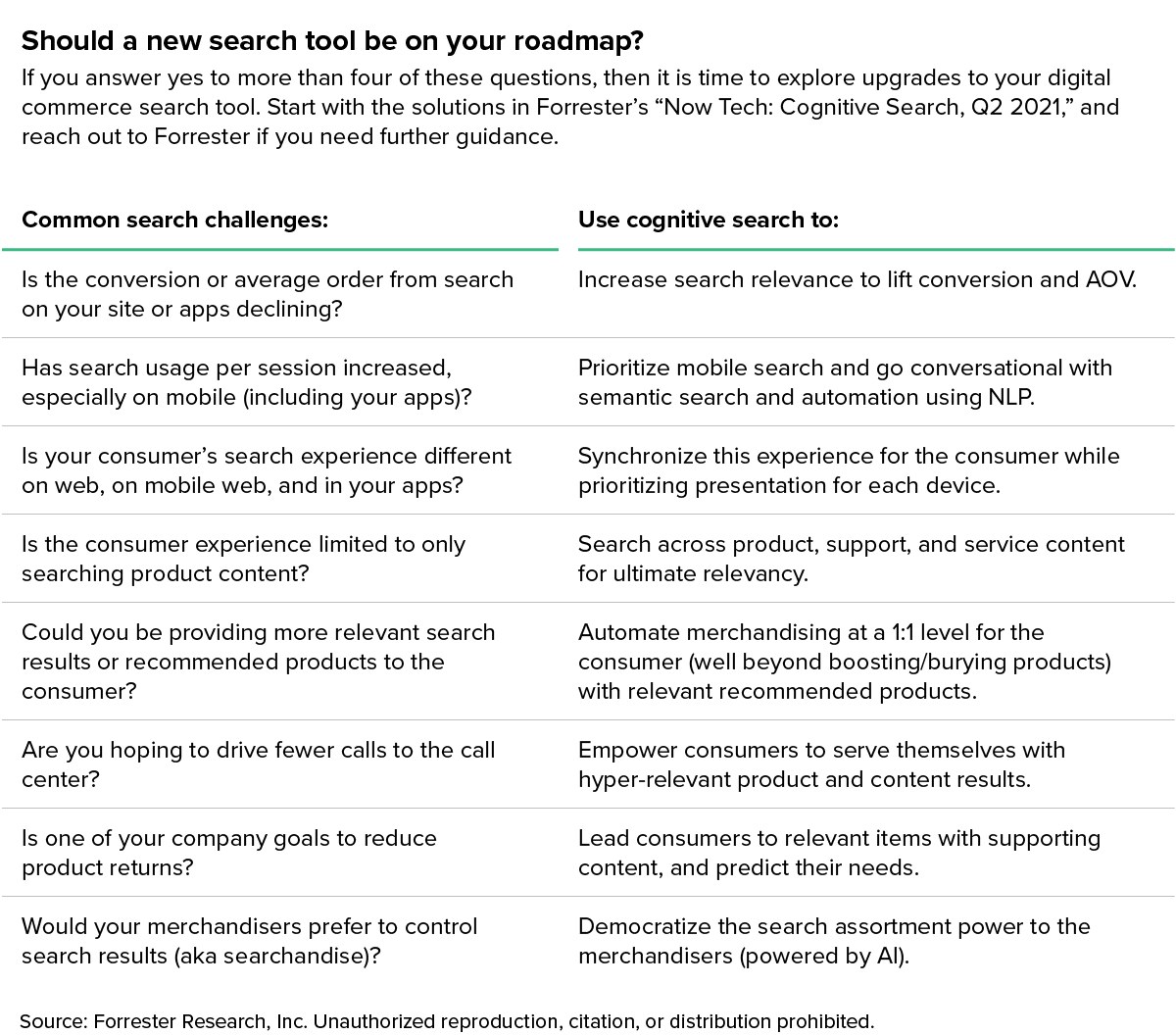Searching For ROI In Retail: The Time For A New Site Search Tool Is Now
AI-Powered Digital Commerce Search Is A Competitive Asset
Retailers and brands should reevaluate their product findability tools because recent developments in search tech (powered by AI/machine learning) combine many points of contextual data to deliver highly relevant results. If you’re unsure about the potential impact of search on your e-commerce site, remember that even back in 2018, Amazon had surpassed Google in being the first place that — at that time — over one-quarter of US online adults began a product search. Today, 62% of US adults use Amazon to search and compare products. Based on those experiences, consumers expect highly relevant search experiences across digital touchpoints because:
- Consumers are increasingly shopping across brands. Today, 52% of US online adults agree that they enjoy trying new brands and products, up from 39% 10 years ago. Consumers are likely to use site search as part of their new brand and product discovery, which, in turn, puts the onus on e-commerce teams to optimize site search results because unfamiliar navigation for first-time users leads to additional search queries. New users also create novel patterns in the keywords they use, so an adaptive search tool is essential to provide optimum relevance over time without manual intervention.
- Mobile usage, both in-store and out-of-store, will grow site search usage. Forrester projects that retail mobile commerce will grow at an annualized rate of 17% until 2024, which means that search on mobile continues to grow also. For many retailers, site search is still an unoptimized feature that may be hindering the performance of product findability and conversion. In addition, most brands and retailers have not implemented natural language processing (NLP) in their mobile search or developed highly usable mobile interfaces. New conversational search technologies are filling this mobile gap to engage consumers on mobile using spoken language queries and without the user experience issue of presenting a long list of filters from which to select.
When To Evaluate Your Current Search Tool
Old-school search matched keywords in the query to keywords in the content, but new search tech is far more relevant. Historically, digital commerce teams could remove words from the queries using stop words or create relationships with synonym entries, but the process was static, manual, and prohibitive to administer due to the excessive labor demands. If you’re stuck in this quagmire, now is the time to explore AI-powered search tools that identify the true intent of the consumer and provide personalized and highly relevant results. Use the guide below to identify how cognitive search can help solve both business and customer challenges.
Figure 1: Quick Guide to Search Upgrade Decisions

Need some help with search tuning or deciding on a new tool?
Start with the digital commerce search solutions in Forrester’s report, Drive Shopper Relevance With AI-Driven Digital Commerce Search, or Forrester’s Now Tech: Cognitive Search, Q2 2021 . You can also reach out to me via inquiry at Forrester for further guidance vis-à-vis your site search strategy and technology.
